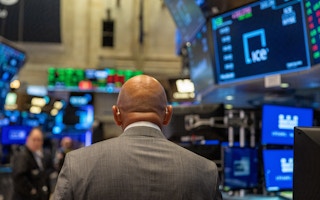The world’s wealthiest 1 per cent of people own nearly 43 per cent of all global financial assets and emit as much carbon as two-thirds of the planet’s poorest, according to an Oxfam report published on Monday ahead of a gathering of the World Economic Forum (WEF).
Heads of state will join chief executives, business leaders and other prominent figures this week to discuss pressing global issues -from geopolitical instability and climate change - at the WEF’s annual meeting in Davos, Switzerland.
The Oxfam report said:
- Since 2020, the world’s five wealthiest men - including Amazon’s Jeff Bezos and Bernard Arnault, head of luxury goods empire LVMH - have more than doubled their collective fortunes to US$869 billion, a rate of around US$14 million an hour.
- In 2023, billionaires were US$3.3 trillion, or 34 per cent, richer than they were in 2020 when the Covid-19 pandemic hit.
- Seven out of 10 of the world’s biggest companies, such as tech giants Apple, Meta and Tesla, have a billionaire as CEO or principal shareholder.
- Globally, men own US$105 trillion more wealth than women, which equates to more than four times the U.S. economy.
- If trends continue, the world will have its first trillionaire within a decade, but poverty - living on less than US$6.85 dollars a day, according to the World Bank - will not be eradicated for another 229 years.
“Billions of people are shouldering economic pain from the pandemic and inflation from war, while at the same time billionaire fortunes and corporate profits have boomed,” Alex Maitland, one of the report’s authors, told Context.
“These big crises have really supercharged the effect on inequality,” said Maitland, Oxfam International’s inequality policy advisor.
“
Billions of people are shouldering economic pain from the pandemic and inflation from war, while at the same time billionaire fortunes and corporate profits have boomed.
Alex Maitland, researcher, Oxfam
The United Nations International Labour Organization said last week the number of people living in extreme poverty – earning less than US$2.15 a day – grew by about 1 million in 2023 to reach 241 million globally.
It said an extra 2 million people will be unemployed due to conflicts, inflation and the higher cost of living, pushing the global unemployment rate from 5.1 per cent in 2023 to 5.2 per cent in 2024.
This story was published with permission from Thomson Reuters Foundation, the charitable arm of Thomson Reuters, that covers humanitarian news, climate change, resilience, women’s rights, trafficking and property rights. Visit https://www.context.news/.










